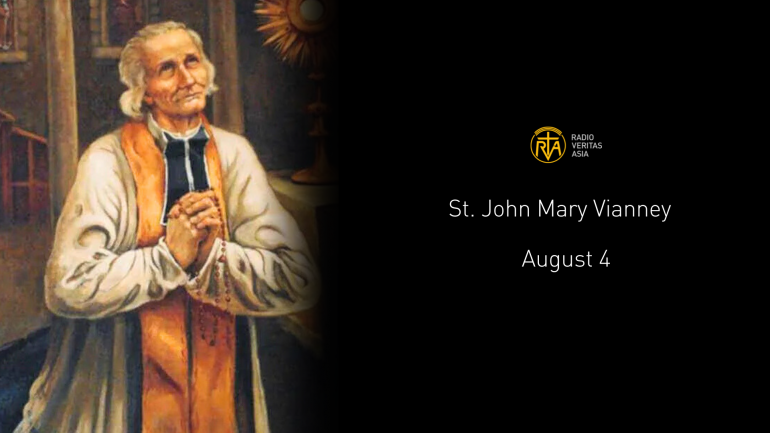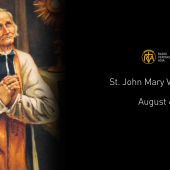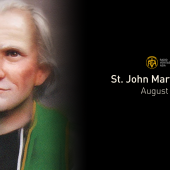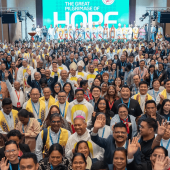Ordinary Holiness: The Radical Witness of St. John Vianney

People did not expect much from John Mary Vianney. Born in 1786 in a French village, he struggled through school and could barely manage Latin, the essential language for priests. Most assumed he would never make it. But something kept him going. Prayer, persistence, and a few mentors who saw beyond his academic struggles helped him receive ordination in 1815.
His first assignment was Ars, a forgotten village where faith had grown cold. People worked, drank, and lived with little thought of God. Vianney arrived without any grand strategy, just the basics of priesthood: saying Mass, hearing confessions, visiting the sick, teaching children, and praying constantly.
He was not a gifted speaker. His sermons were plain and direct. He was awkward, shy, and lacked the charisma to draw crowds. But he possessed something more powerful than eloquence: authenticity. He believed every word he preached and lived it daily. That changed everything.
Word spread beyond Ars. People traveled from distant towns to see this simple priest. They said he could read souls in confession, understanding their sins and struggles before they spoke. Some reported miracles. Others found peace simply talking with him. In his later years, tens of thousands made pilgrimages to see him annually. He spent sixteen hours a day in the confessional, ate little, slept less, and poured himself out completely for those he served.
The supernatural stories are not what matter most today. What endures is how he lived. Vianney had no personal ambition. Fame terrified him. He even tried fleeing his parish multiple times, convinced someone else could do a better job. But he always returned, because he knew his purpose was not to impress, but to serve.
We live in a world where many feel invisible, unheard, and lost. Despite endless entertainment, loneliness abounds. Despite unlimited access to information, confusion reigns. Vianney had no platform or personal brand. What he offered was presence. He listened. He prayed. He stayed.
That might not sound revolutionary, but it is. In a noisy world, silence becomes radical. In a divided culture, patience holds power. In a self-obsessed age, humility draws people in.
Vianney was not perfect. He was harsh with himself and sometimes too strict with others. His fasting bordered on dangerous. But punishment was never his goal. He wanted people to understand that love requires sacrifice, and that souls matter more than comfort.
There is wisdom here for us. We are constantly told to “find ourselves” by chasing dreams, earning more, or standing out. Vianney discovered himself by giving himself away, repeatedly, in the same small place, to the same ordinary people.
He is now the patron saint of parish priests, which makes perfect sense. But perhaps he is also a patron for anyone trying to live faithfully in hidden ways, the schoolteacher who shows up daily without recognition, the nurse who cares for the elderly without applause, the parent who loses sleep to comfort a crying child. These aren’t glamorous acts that go viral, but they transform lives.
Vianney would have understood that completely. He believed grace worked through ordinary routines. He heard thousands of confessions because he trusted that people could change, no matter their past. He believed in mercy not as an abstract idea, but as a real force that heals hearts.
He also embodied perseverance. His forty years in Ars included dry spells and hard seasons, but he never walked away. He remained with his people. That is rare. Most of us are conditioned to move on when things get difficult. Vianney teaches us to plant ourselves where we’re needed and stay, even without applause.
His life challenges our restless culture. We’re constantly in motion, always chasing the next opportunity, the better job, the more exciting place. But transformation often happens through staying power, through being present even when it’s boring, difficult, or thankless.
Vianney’s life also speaks to our hunger for authenticity. In an age of image management and curated personas, his simplicity stands out. He wasn’t performing holiness; he was living it. People sensed this. They knew he wasn’t trying to sell them anything or build a reputation. He was simply there for them.
Saint John Mary Vianney died in 1859, having never traveled far or written a book. But his life continues to speak, because he gave it entirely to love and service. That is what holiness looks like, not perfection or popularity, but presence.
More than 160 years later, his example remains deeply relevant. In a world where everything changes rapidly, we need people who stay rooted. In a culture of constant chatter, we need those who listen more than they speak. In a society driven by self-promotion, we need people who choose to love quietly but deeply.
Vianney was one of those people. His legacy reminds us that the most powerful changes often happen through the simplest means: showing up, staying present, and serving others, without expecting anything in return.
Radio Veritas Asia (RVA), a media platform of the Catholic Church, aims to share Christ. RVA started in 1969 as a continental Catholic radio station to serve Asian countries in their respective local language, thus earning the tag “the Voice of Asian Christianity.” Responding to the emerging context, RVA embraced media platforms to connect with the global Asian audience via its 21 language websites and various social media platforms.













